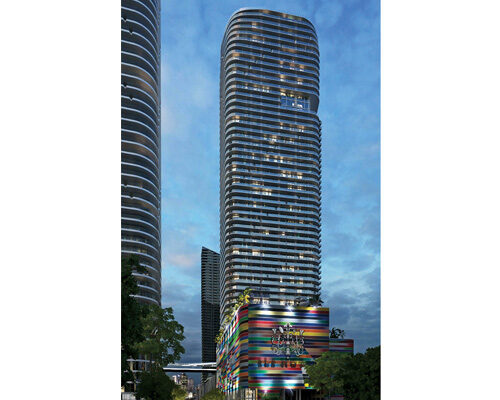Project V5 distinguishes itself from standard corporate-values efforts via its charitable function. Funded by the collection and sale of scrap metal from project sites, Project V5 supports charitable requests from employees, and in a big way. In its first year, Project V5 donated more than $200,000 to the Make-A-Wish Foundation. And in 2010, the fund fully sponsored a flight of medics to Haiti after a massive earthquake devastated the island nation.
Essentially, the company says, "Project V5 was established to take our values into the communities in which we work."
Earlier this year, the contractor undertook a campaign aimed at discouraging workers and others from engaging in distracted driving-which, it should be noted, faces only limited sanctions in the state of Florida. Called the Power of 1, the campaign-inspired by a real-life distracted-driving incident-goes well beyond simple slogans and company posters on break-room billboards.
Instead, in a slick-but-quick company video, the words of CEO Mitch Permuy add heft to the kickoff campaign, where he notes that as a result of today's technology, "the urge to respond has become so compelling that we become distracted, and the unsafe driving begins." Permuy goes on to urge workers to "join me to make the one decision to not text while driving; the one decision to not email while driving; and the one decision to not drink and drive."
In support of the message, the company will pay for employees to get a ride home, if necessary. Additionally, for every employee that pledges to drive safely, Project V5 makes a donation to the group End Distracted Driving.
Beyond the primary message of discouraging unsafe driving, the campaign seems to be resonating with employees on another level. Taylor Precourt, a senior IT project director, says, "It's not just a marketing scheme. They see the value of the individual employee. There are a lot of drunk drivers, but texting while driving is becoming just as serious. We're a very sincere company, inside and out."
Tech Savvy
As important as those personnel-related soft skills are to the company, it is Power Design's field savvy that's kept the contractor busy. Again, like other firms that have remade themselves post-downturn, an emphasis on technological skills is playing a key role in the company's resurgence.
In the South Florida multifamily market, for example, the contractor has been able to differentiate itself from competing specialty firms by utilizing "full in-house 3D capabilities," such as BIM, and by using total stations on its jobs for layout.
Most South Florida condominium projects today are being built by the "big guys," says Musolino, his term for highly sophisticated general contractors. "These companies are cutting edge on technology, so they like firms that pair up well with them."
Power Design's design-assist capabilities also aid with winning jobs in the Miami-area multifamily sector, he adds. "In Florida, they don't hire us until they're done with piles," Musolino says. "Then it's, Go! So we have to jump on the job and do our design-assist to get to the right price" quickly.
As a result of situations like these, the firm has earned a reputation for being a go-to company.







